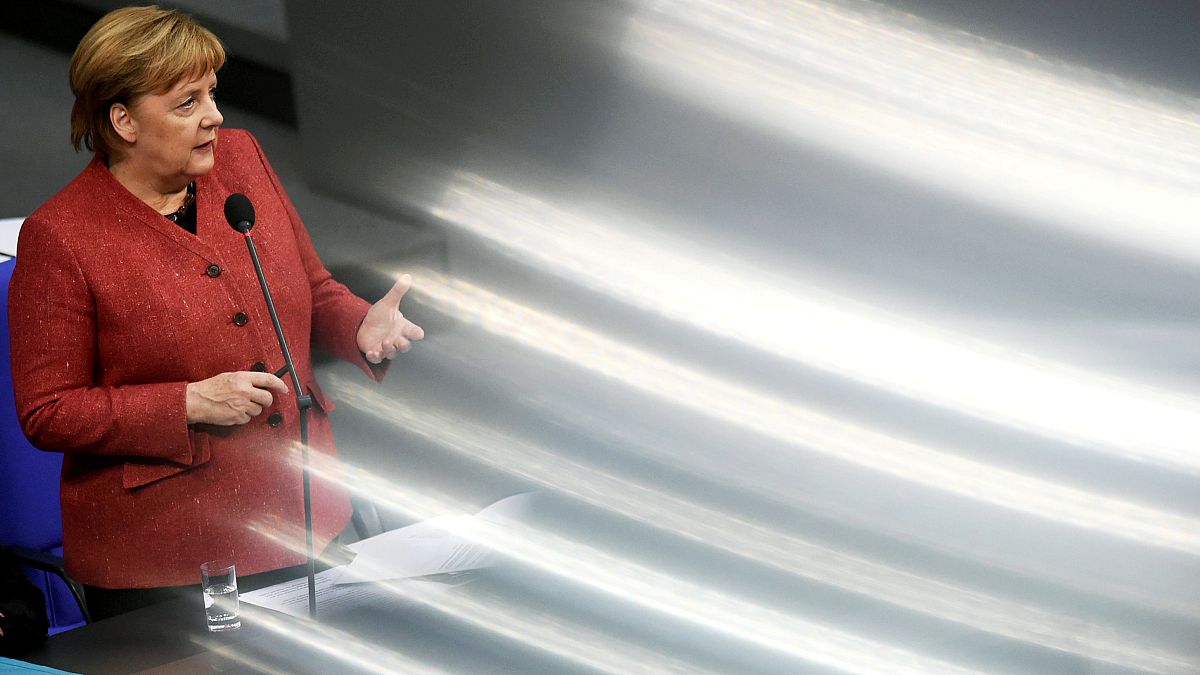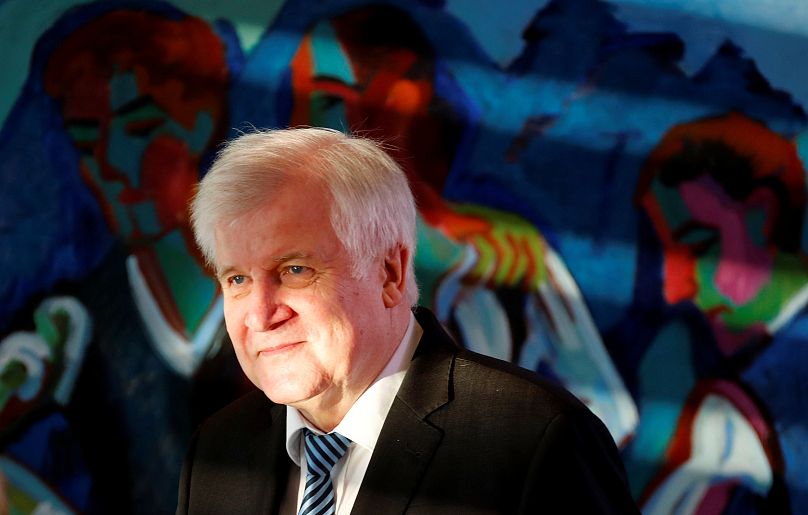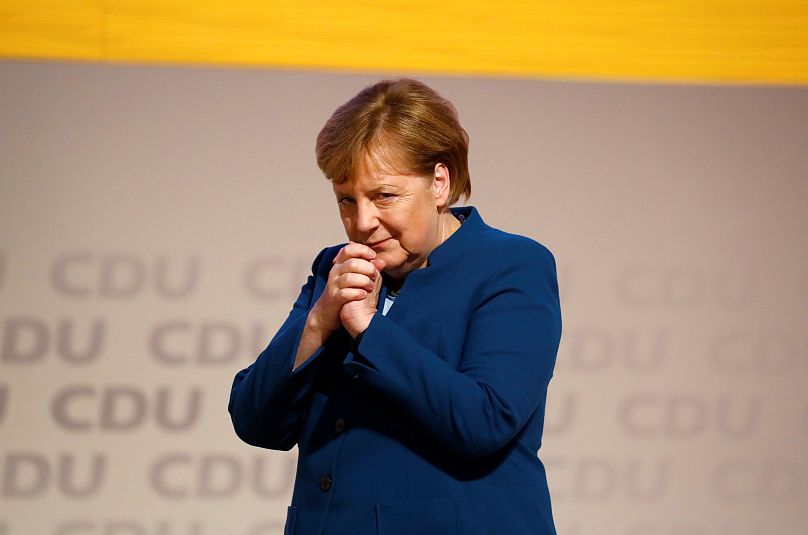Euronews' experts on Germany, our correspondent in the country, Emmanuelle Chaze, and digital journalist, Linda Fischer, reflect on the year and discuss what is likely to be on the agenda over the next 12 months.
Euronews' experts on Germany, our correspondent in the country, Emmanuelle Chaze, and digital journalist, Linda Fischer, reflect on the year and discuss what is likely to be on the agenda over the next 12 months.
What was the biggest story of the year in Germany?
Emmanuelle: The biggest story this year in my opinion is Angela Merkel announcing her retirement as head of the Christian Democratic Union (CDU). She had always said it was unthinkable to be chancellor without also being head of the majority/ruling party, so now she's in uncharted waters.
Linda:Hans-Georg Maassen's case was very big. It kicked off on August 26 when a man was killed in Chemnitz — allegedly by two immigrants from Syria and Iraq. Right-wing sympathisers, some doing Nazi salutes, gathered hours later to protest the killing and decry immigration. A video, reportedly filmed at the protest and appearing to show a mob chasing foreign-looking individuals, was then shared.
The case was transferred to the Federal Office for the Protection of the Constitution (BfV), whose head was Maassen. Despite the video having been widely accepted as true, Maassen described it as "deliberate misinformation" in an interview with the Bild newspaper, thus undermining the credibility of various institutions.
His comments sparked a dispute in the ruling coalition made up of Merkel's CDU, the Christian Social Union (CSU) and the Social Democratic Party (SPD) with the latter demanding Maassen be dismissed. But instead, CSU leader and Interior Minister Horst Seehofer decided to effectively promote Maassen by appointing him Secretary of State.
In the end, Maassen was completely dismissed — also because he had repeatedly shown sympathies for the far-right Alternative for Germany (AfD) party and was therefore no longer acceptable.
In the course of the reporting on the story, it also became clear that the BfV had, for years, been turning a blind eye to the rise of the far-right.
In what way has Germany changed over the course of 2018?
Emmanuelle: Despite economic growth and positive figures when it comes to unemployment, Germany has seen its political landscape more and more antagonised, with less support shown for traditional parties such as the SPD and the CDU/CS — mostly in favour of the AfD and the Greens.
Also, it is the year Angela Merkel gave in on her migration policy. This was a major change due mostly to Interior Minister Horst Seehofer's constant insubordination and threats within the coalition.
Linda: There are two things that came in mind: First, the rise of the AfD with the party now having seats in every state parliament in the country.
Then, the aftermath of the emissions scandal. It's no secret the Germans are proud of "their" cars. But since the scandal, certain diesel cars have been banned and you can sense some kind of paradigm shift away from Volkswagen and diesel. I wouldn't have thought that would be possible a few years ago.
Who was the country’s personality of the year and why?
Emmanuelle: Annegret Kramp Karrenbauer is the obvious go-to as she managed to win a narrow election and is, as the new head of the CDU, Germany's likeliest next chancellor. It remains to be seen whether or not she can reconcile all tendencies within her own party.
Linda: I would say Horst Seehofer. I don't think anyone polarised more than he did. He was very present throughout the year, threatened to resign once to get what he wanted, and was extremely prominent with statements that clearly indicated he wanted to get AfD voters to back the CSU in the Bavarian state election.
What can we expect from Germany next year?
Emmanuelle: More political turmoil! The Grand Coalition is more fragile than ever, it might not last very long as three regional elections as well as the EU elections will probably see the far right and populists gain more momentum. Maybe this will also be the year of Angela Merkel's demise.
Linda: There will be political turmoil for sure. But I think there is a chance that there will be some interesting and maybe positive changes. The Greens, for instance, have gained power in Bayern and could bring some new spirit into the political world.
How would Germans rate this year and are they optimistic for 2019?
Emmanuelle: It's interesting to see the difference between media reporting and the reality in the field: while we report a lot on discontent, the polls show that people in Germany still support, for example, Merkel as their chancellor.
Linda: For some reason, the Germans rated 2016 as one of the worst years ever, don't ask me why! So I think many people would say it was a good year with a few bad things — the AfD's rise for instance. And I totally agree with Emmanuelle: the view on what is happening is a bit schizophrenic.


